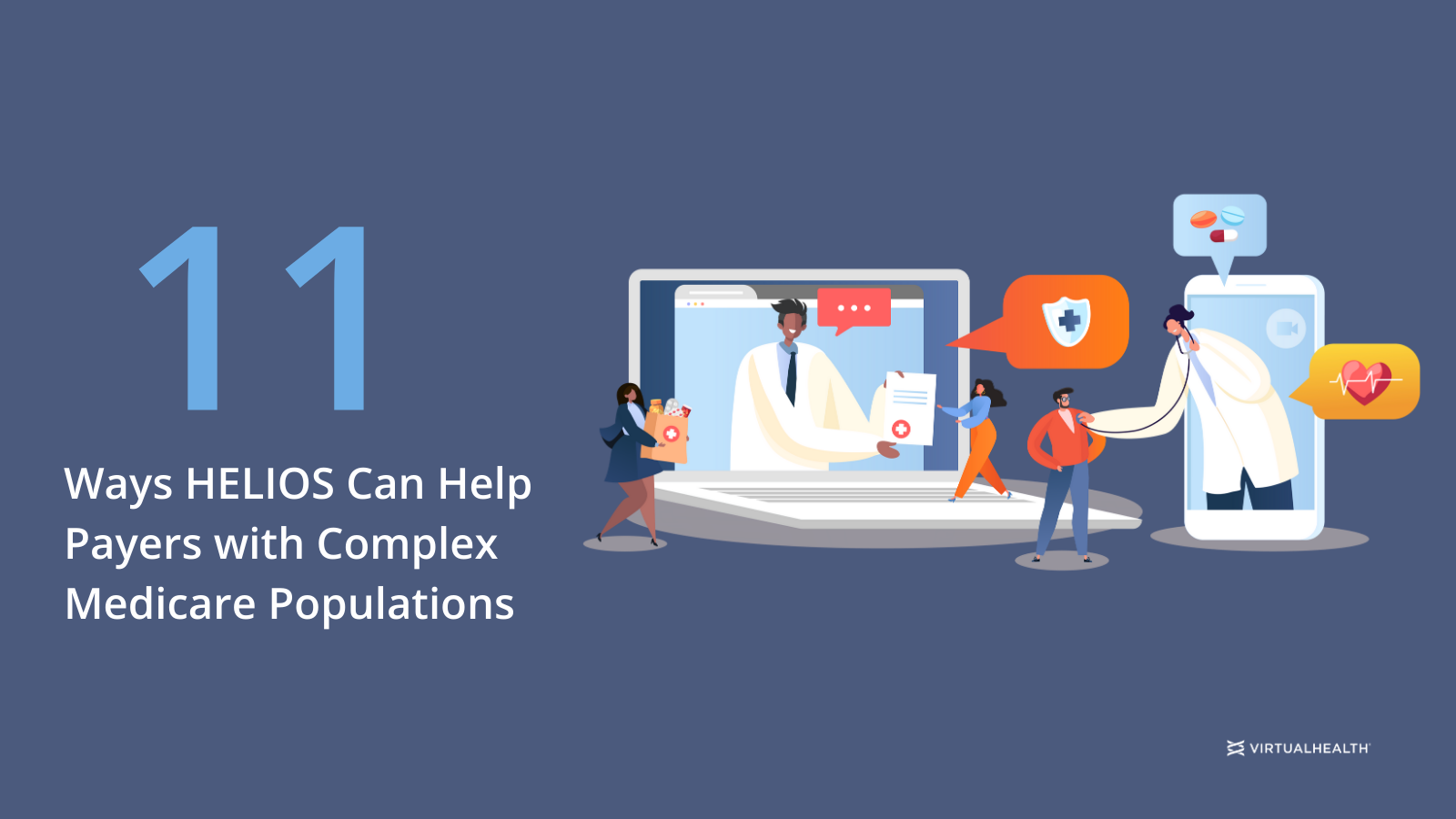Improving health outcomes and reducing costs of care for Medicare populations may seem like an overwhelming challenge with chronic conditions costing billions each year. After all, these populations are typically older, and with age comes the onset of some of the most common (and expensive to manage) chronic conditions, such as cardiovascular disease, heart failure, hypertension, diabetes, osteoarthritis, and Alzheimer’s disease.
The high cost to manage these patients is very much on CMS’ radar, however, and has prompted CMS and many Medicare plans to adopt value-based care models that focus on preventive care and reducing the associated issues related to chronic conditions that drive up costs. Two examples that consequently require more advanced, costly and complex treatment include frequent hospital admissions and patients who avoid care due to lack of access, mobility issues, cost, low health literacy, or knowledge deficit.
To improve care delivery and health outcomes for Medicare and Medicare Advantage populations with chronic conditions really comes down to enabling a proactive care approach with an engaged member base. (Here are 6 strategies payers can leverage to do just that).
But for the purpose of this article, we want to focus on how HELIOS can help payers and care teams to optimize chronic care management services.
The Benefits of Using HELIOS for Chronic Care Management
Think of HELIOS as a living-breathing workbench for care management. Its library of patient data collected from the entire healthcare ecosystem (including remote patient monitoring and population health metrics) is carefully organized and reviewed by its AI-powered “librarian” and automatically served up to give care teams a 360-degree view of a patient including red flags and health risks. It also automates tasks and workflows that enable care managers to identify and address physical, behavioral and social determinants of health, health-related social needs, and gaps in care.
HELIOS’ integrated features and capabilities can help care teams improve the following chronic care management services.
- Developing a plan of care for members with complex and chronic conditions
- Providing routine care management services
- Increase care coordination among providers, pharmacies and facilities
- Regular check-ins with members in between provider visits
- Enhanced access to the integrated care team
- Identifying and addressing a member’s knowledge gaps and adherence issues
- Accessing services, resources, and supports a member needs
- Ensuring members with chronic conditions are actively engaged in improving their health and wellbeing
11 Unique Features of HELIOS to Help with Chronic Care Management
HELIOS has unique features that are specifically designed to help Medicare and Medicare Advantage payers and providers enable their care teams to focus on providing more effective care efficiently for members with chronic conditions. Below are 11 cost-saving and care-improving capabilities that the HELIOS platform can provide.
- AI-driven insights use member data to identify people who should receive preventive screenings and assessments for chronic diseases, enabling early diagnosis and intervention.
- Automated workflows can keep team members working collaboratively from the same information, resulting in better continuity and care coordination (i.e., right person, right action, right time).
- Implement care pathways that recommend best practices for clinical management of chronic diseases.
- Tie in behavioral healthcare for members by virtually linking to mental, behavioral, and other healthcare professionals.
- Identify SDOH for a population (e.g., a zip code is in a low-income area or has food deserts) and address individual health-related needs through in-platform integration with community resources. This may also include addressing health education gaps and providing resources with information to members.
[HEALTHWISE + HELIOS PDF or info CTA]
- Support personalized care planning for members with chronic conditions by giving the entire team – care managers, primary care and specialty providers, pharmacists, and others – a real-time view of goals, barriers, interventions, and progress.
- Improve medication management with automated alerts signaling that adherence may be a problem (e.g., a member hasn’t filled a prescription) or that medication reconciliation is due.
- Better manage care transitions with AI-driven alerts that keep staff updated on hospitalizations, ED visits, referrals, follow-ups, home care planning, and discharge planning.
- Strengthen communication and member engagement. Look for platforms that integrate many channels (e.g., text, phone, telehealth) so care managers and other clinicians can communicate with members according to their preferences.
- Surface gaps in care, and in meeting quality measures, so that the care team can take action to bridge them.
- Automate documentation of CCM services required for receiving reimbursement under the Medicare CCM benefit.
If you want to learn more about any of the above, set up a time to get a custom HELIOS demo here.

